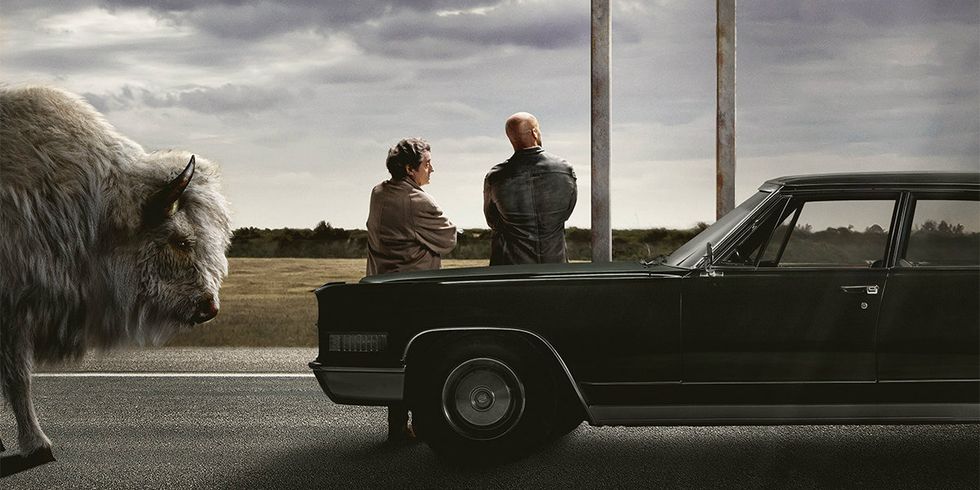While every art form has its own benefits when it comes to adapting novels, whether that be film's ability to deliver concise stories from 700 page works to the way musicals lend themselves to first person narratives, some of the most satisfying adaptions are those novels that are made into television shows. The length and chapter-like quality of television allows for even pacing and provides ample room for the development of plotlines and characters that aren't afforded the time in the novel, qualities that Bryan Fuller's adaption of Neil Gaiman's American Gods uses to their full capacity. The first season of the show, which ended this past Sunday, spans only a couple chapters of the novel, giving the show sufficient room to breathe and create its own unique additions to the story and its enormous cast of characters.
As American Gods follows its hero, Shadow Moon, and his employer, Mr. Wednesday, into a war between the gods of old and new, Fuller's adaption focuses on delivering attention and development to every character, from the novel's main pair to those originally given hardly a line of dialogue. Wednesday becomes infinitely more likable in the hands of Ian McShane, who manages to trade crudeness for charm despite the fact that much of his dialogue is lifted directly from the book, and Ricky Whittle injects his own genuine, heart-filled character interpretation into Shadow, combining the character's sturdy reservation with thoughtful, confused sadness and a number of hopeful, gentle smiles. On the other side of the spectrum, the creators use the fact that there is so much room for growth within the TV show format to give minor characters like Laura Moon, Mad Sweeney, and Salim fully fleshed-out storylines, crafting an entire B-plot out of their newly-invented cross-country road trip. In adapting the novel for television, the creators have given themselves an incredible amount of space to dedicate to every aspect of these characters.
In taking the time to allow Gaiman's creations to expand, the show can not only tell his story, but develop and enrich it. It provides artful detail to the short "Coming To America" sections of the original novel. It explores how Shadow's race affects him, rather than having his racial ambiguity questioned in passing and never given a concrete answer. It lets its camera linger, perfecting Bryan Fuller's ever-developing aesthetic to create a completely surreal world. As a result, American Gods delivers everything from an animated sequence illustrating Nunyunnini's introduction to America, to a shocking and heavy reminder of the weight of America's racial past carried within Shadow's character, to a style that takes the best of the candy-colored world of Pushing Daisies and the unsettling realm of Hannibal and combines it with a newly polished and deeply Americanized Bryan Fuller Aesthetic (detailed beautifully in this article in The Atlantic). The show is elaborate, mindbending, and willing to find both humor and horror in absurdity, delivering an adaption that manages to be a completely different yet perfectly translated version of American Gods.
Watch the trailer for American Gods below:





















